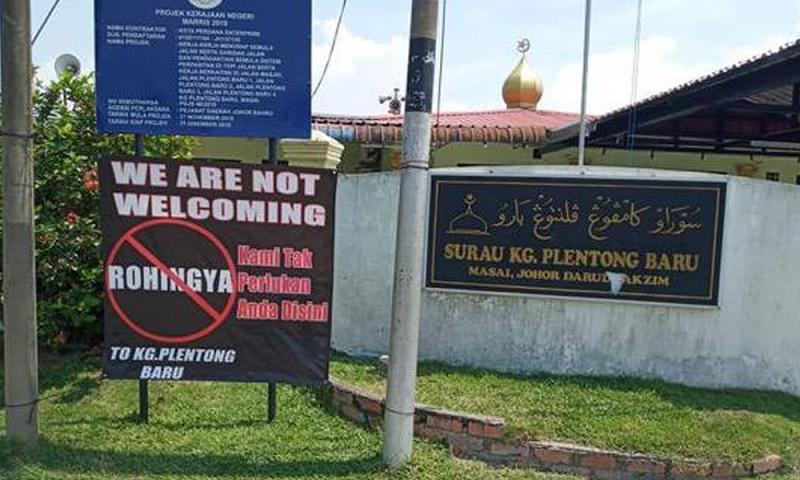MP SPEAKS | Fight hate speech: Need for strong laws, education
MP SPEAKS | On June 18, we commemorated the “International Day for Countering Hate Speech” as declared by the United Nations.
Hate speech, encompassing any form of communication that attacks or discriminates against individuals or groups based on their identity, remains a pressing issue in Malaysia.
We must address this problem by focusing on robust legislation, impartial law enforcement, and most importantly, education, campaigns, and awareness.
Throughout our history, Malaysians have encountered various forms of hate speech, from racial and religious slurs to gender and class-based discrimination.
Recently, we witnessed the rise of homophobia and xenophobia as well. If you ask any Malaysian, you will likely hear stories of individuals who have been victims of hate speech.
Unfortunately, despite mounting pressure from different quarters to abolish the archaic Sedition Act of 1948, numerous individuals have been investigated, charged, and convicted under this legislation.
Regrettably, the Sedition Act has often been used as a tool to stifle dissenting voices or opinions that do not align with the government of the day.
However, we must acknowledge that solely relying on the Sedition Act cannot be the ultimate solution to combat racism, hatred, and discrimination in Malaysia.
This outdated law, originally aimed at countering communist propaganda in the 1940s, no longer serves a purpose in a thriving Malaysia under the new Madani government.
Addressing hate speech must begin within our education system, where children learn about different cultures, languages, religions, and the importance of combating misogyny, sexism, and patriarchy.
As these children grow into adults, it becomes the government’s responsibility to regulate hate speech both offline and online. We should also keep up with best practices, universal values, and international standards adopted by other developing nations.
For instance, derogatory name-calling towards Africans brought to America as slaves hundreds of years ago is now prohibited in many states there.
Likewise, the United Kingdom has criminalised name-calling based on physical appearance and skin colour for individuals from South Asia.
Strong laws
Malaysia needs a comprehensive action plan that includes the formulation of a Race Relations Act or the revival of the National Harmony Bill, along with the reinstatement of the National Harmony Commission.
However, this approach must go beyond mere tolerance, which often allows those in power to set ambiguous boundaries.
Instead, we must foster mutual understanding, taking into account our rich histories and diverse cultural identities, to build a united Malaysia.
Additionally, we must address the status of the National Harmony Bill and Harmony Commission, which have surfaced and disappeared due to shifting political ideologies.
Under the Pakatan Harapan government in 2019, positive steps were taken toward the introduction of these measures.
Unfortunately, following a change in government in 2020, the Perikatan Nasional administration scrapped these initiatives, failing to recognise their significance, necessity, and the positive impact they could have had in establishing a more transparent and just system.
Instead, the Sedition Act was relied upon, despite its proven ineffectiveness in preventing hate speech.
In conclusion, the rise of distrust, unfamiliarity, and perpetuation of unknown beliefs have fuelled the spread of hate speech in Malaysia.
Prioritise discussions
It is our collective responsibility to prevent it from becoming an uncontrollable wildfire. We must reject political leaders who normalise hate in their election campaigns and even within our Parliament.
It is time to prioritise discussions on ethnic relations, migrants and refugees, gender, and their role in nation-building while recognising that the true enemy is hate speech.
Those who have propagated hate speech to advance their own interests must be held accountable and their actions reversed.
As elections approach in six states, I hope to witness debates and arguments centred around policies, principles, customs, and the law for the overall benefit of all Malaysians.
Let us bury the ghosts of hate speech in the form of racism, sexism, xenophobia, homophobia, and religious bigotry, and instead strive for a cleaner and more respectful campaign for the betterment of our nation.
TERESA KOK is the DAP MP for Seputeh.
The views expressed here are those of the author/contributor and do not necessarily represent the views of Malaysiakini.
RM12.50 / month
- Unlimited access to award-winning journalism
- Comment and share your opinions on all our articles
- Gift interesting stories to your friends
- Tax deductable
